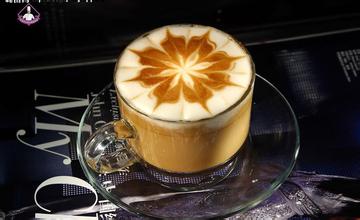Papua New Guinea Coffee
The coffee beans of Papua New Guinea are processed washed Arabica beans with a taste similar to the bright notes of Central and South America, with obvious sour aromas, sometimes orange, flower and fruit, slightly spicy and chocolate, and long-lasting sweet aromas of caramel.
Flavor reference: refreshing herbal and floral aroma, prefer the tonality of Central and South American beans, slightly sour, fruity, sticky, full taste, subtle aroma and complexity, sometimes acid value and brightness even comparable to Central America's top coffee bean character in fact, the Bird of Paradise comes from the famous farm Sigri Estate in Pakistan, even without the name of the beautiful Bird of Paradise, it comes from a famous family. Sigri is famous for its beautiful environment, pleasant climate and traditional and strict process of coffee handling. Internationally, if you say Bird of Paradise, there is some ambiguity, people can only know that it is beans from Pakistan, but if you say it is sigri, you will definitely get a thumb-up.
Yesterday, because a friend asked for the bird of paradise (I also like to call her by that name), so I baked a little more and kept it for my own use. Today is just the second day, although it is not the best time to drink, but I can't help it. So when I had this scene, I once introduced the bean, the bird of paradise. In fact, it may be a bit far-fetched to say that this bean is called the bird of paradise. However, when the people of Papua New Guinea introduced this bean, the beautiful national bird of Papua New Guinea, Bird of Paradise, on the sack was impressive, so the bean was later named "Paradise Bird". But then there was another bean from Pakistan, which was also printed with the bird of paradise on the sack, but the beautiful name was given to the first-in bean, and the second bean was only named after the farm-prosa. In fact, according to the official name, the beans that come first should also be named after regions or farms, but it is too difficult for Chinese people to escape the temptation of the word "bird of paradise". This beautiful "bird of paradise" is its big name.

Important Notice :
前街咖啡 FrontStreet Coffee has moved to new addredd:
FrontStreet Coffee Address: 315,Donghua East Road,GuangZhou
Tel:020 38364473
- Prev

Nicaragua Coffee Estate Flavor Taste Introduction Lemon Tree Estate
Lemon Tree Estate Lemon Tree Estate is located in the Yasica Norte region of Nicaragua and is managed by Santos Demitrio Flores. Coffee cultivation covers an area of 171 hectares, natural reserves of 77 hectares, elevations between 850 and 1,150 meters, and average annual temperatures of 20-28 degrees Celsius. The estate is mainly planted with Kadura, Java, Pugmala and Yellow Pugmala species. Coffee picking
- Next

The special flavor of Indonesian Kopi Luwak introduces boutique coffee beans.
Kopi Luwak, also known as civet coffee. The official name of Kopi Luwak is Kopi Luwak. Kopi means coffee in Indonesian and Luwak is a wild civet in Indonesia. The coffee is commonly known as Kopi Luwak because it is made from beans picked from the droppings of civets. Kopi Luwak, produced in Indonesia, grows a lot of coffee crops.
Related
- Does Rose Summer choose Blue, Green or Red? Detailed explanation of Rose Summer Coffee plots and Classification in Panamanian Jade Manor
- What is the difference between the origin, producing area, processing plant, cooperative and manor of coffee beans?
- How fine does the espresso powder fit? how to grind the espresso?
- Sca coffee roasting degree color card coffee roasting degree 8 roasting color values what do you mean?
- The practice of lattes: how to make lattes at home
- Introduction to Indonesian Fine Coffee beans-- Java Coffee producing area of Indonesian Arabica Coffee
- How much will the flavor of light and medium roasted rose summer be expressed? What baking level is rose summer suitable for?
- Introduction to the characteristics of washing, sun-drying or wet-planing coffee commonly used in Mantenin, Indonesia
- Price characteristics of Arabica Coffee Bean Starbucks introduction to Manning Coffee Bean Taste producing area Variety Manor
- What is the authentic Yega flavor? What are the flavor characteristics of the really excellent Yejasuffi coffee beans?

